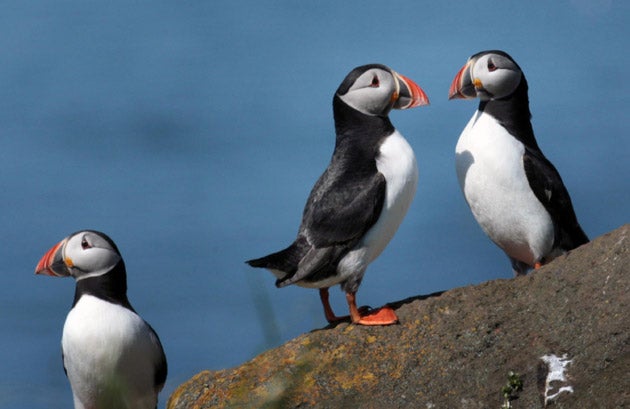Climate change and overfishing is threatening the future of seabirds
Long-term declines in breeding rates indicate diminishing food resources in ecosystems where ocean warming and other human impacts are highest, study warns


Climate change is threatening the reproductive rates of seabirds in the northern hemisphere, scientists have warned — and those in the south may not be far behind.
In a study that analysed more than 50 years of breeding records for 67 seabird species worldwide, scientists at the Farallon Institute in California conclude that “frequent and more extreme events such as heat waves” has made it difficult for seabirds to breed. Birds out in the ocean are equally vulnerable.
As guards of the natural habitat, seabirds' lives and wellbeing depend on sound conditions both on land and at sea, said co-author Dee Boersma, University of Washington professor of biology and director of the Center for Ecosystem Sentinels.
But changing environmental conditions alone are not to blame for the threat to seabirds. Pof Boersma said that seabirds compete with humans for food. "They can get caught in our fishing nets,” she said. “They eat our plastic, which they think is food.”
Co-author Marisol García-Reyes, an oceanographer at the same institute, said that as climate change alters ocean temperatures, the locations in which various seabird food thrives can shift further from seabird breeding sites.
And the threats faced by the seabirds’ reproductive success have far-reaching consequences for the entire ecosystem.
"Seabirds can handle short-term declines in breeding success, but when breeding success becomes chronically poor - that's not good,” said William Sydeman.
Long-term declines in the breeding success of seabirds indicates that small fish and plankton levels aren't holding up in ecosystems where the rate of ocean warming and other human impacts are highest.
"What's also at stake is the health of fish populations such as salmon and cod, as well as marine mammals and large invertebrates, such as squid, that are eating the same small forage fish and plankton that seabirds eat," said Sydeman.
Seabirds include albatrosses, puffins, murres, penguins and other birds. Regardless of whether they soar or swim, all seabirds are adapted to feed in and live near ocean waters.
In 2015 - 2016, nearly one million murres starved to death and entire breeding colonies were wiped out due to a long-term marine heatwave that disrupted food webs in the northeast Pacific.
Diet plays a crucial role in their ability to rear young ones.
Seabirds travel far for food, and eat a lot — murres, for example, consume half their body weight in fish daily.
Boersma and her team also found that harsh oceanographic conditions punish females more than males. Juvenile females are more likely to die at sea while they're trying to find food.
The study highlighted how seabirds suffered greater consequences from human-caused climate change and other human activities, such as overfishing, north of the equator.
Still, seabirds in the southern hemisphere fared better overall. But over time, southern conditions may catch up to the already-poor conditions in the north, Boersma said.
The team cautioned about the high variability in reproductive success among species, showing that additional research is needed to understand all of the factors that shape feeding and breeding for these species. “Marine ecosystems are so complex and we often can't observe key changes directly," said Sydeman.
In order to safeguard the seabird population, scientists have called for fisheries closures near breeding colonies during chick-rearing periods and the creation of long term marine protected areas.
They also stressed the importance of maintaining long-term seabird monitoring programs, some of which face threats due to changing governmental financial budgets.
Join our commenting forum
Join thought-provoking conversations, follow other Independent readers and see their replies
0Comments